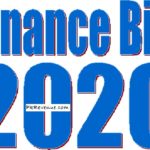KARACHI: Taxpayers have been barred from revising their wealth statement after expiry of five years.
An amendment has been proposed to Income Tax Ordinance, 2001 through Finance Bill, 2020.
According to interpretation of Finance Bill, 2020 by Deloitte Yousuf Adil Chartered Accountants, presently, revision of wealth statement is allowed without a requirement to obtain approval of the Commissioner Inland Revenue, as is otherwise required for revision of return of income.
It is now proposed that such revision of wealth statement shall be contingent upon the similar approval of the Commissioner, which shall be granted, in case of bona fide omission or misstatement.
“However, no such revision is allowed after the expiry of five years from the due date of filing of return of return of concerned tax year.”
Another amendment has been proposed regarding assessment. The chartered accountants explained that currently where a taxpayer has furnished a return of income, the Commissioner Inland Revenue shall be treated to have made an assessment of taxable income and tax due thereon equal to amounts specified in the return.
Further, such return shall be taken for all purposes to be an assessment order issued by the Commissioner.
In order to ensure accuracy of the returns filed by taxpayers, automated adjusted assessment mechanism is being proposed.
Under this mechanism, the return filed shall be subject to an automatic review and adjustment within six months of filing of return for rectification of any numerical errors or incorrect claims, losses, deductible allowances or tax credit, or wrongful carry forward of losses that are apparent from the return of income.
In this regard, a notice shall be issued to the taxpayer before the adjustments are effected in the return, which is required to be responded within 30 days of the date of notice.
Further, where no such adjustments are made within the specified period of six months, the return filed shall be deemed to have been automatically adjusted on the day the return is filed and automatic intimation through IRIS shall be forwarded to the taxpayer.
The existing provisions as to deemed assessment order will now apply to adjusted return rather than the original return filed by the taxpayer.
For the purposes of this section, the following definition are proposed to be introduced vide Finance Bill 2021:
“Arithmetical Error” includes any wrong or incorrect calculation of tax payable including any minimum or final tax payable
“An incorrect claim apparent from any information in the return” shall mean a claim, based on an entry, in the return
i. of an item, which is inconsistent with another entry of the same or some other item in such return;
ii. regarding any tax payment which is not verified from the collection system; or
iii. in respect of a deduction, where such deduction exceeds specified statutory limit which may have been expressed as monetary amount or percentage or ratio or fraction.
The amended provision does not cater for situations where the tax payers have to make adjustments in the return due to inability of the online return form to cater to unique circumstances of the business of the taxpayer.
Application of this automated adjustment mechanism may create problems for the tax payers unless the online return is amended to cater for all situations that a tax payer may face in line with the provisions of law.

